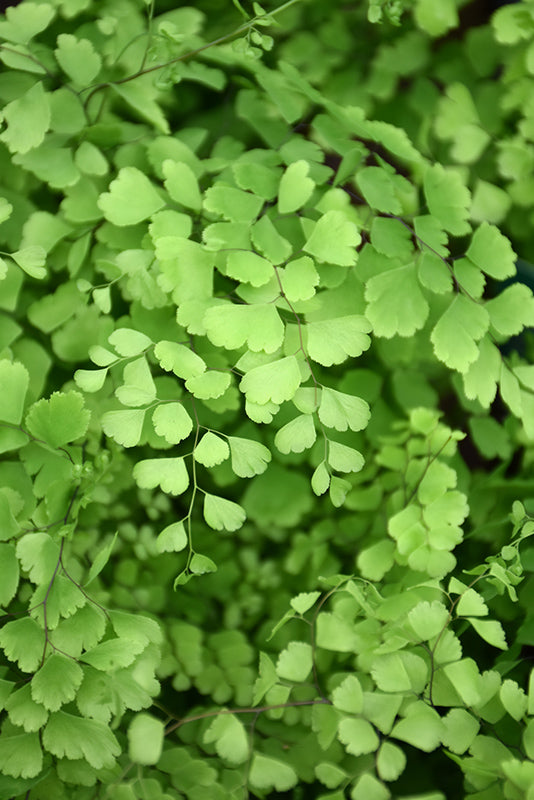Delta Maidenhair Fern will grow to be about 24 inches tall at maturity, with a spread of 24 inches. Its foliage tends to remain dense right to the ground, not requiring facer plants in front. Although it's not a true annual, this slow-growing plant can be expected to behave as an annual in our climate if left outdoors over the winter, usually needing replacement the following year. As such, gardeners should take into consideration that it will perform differently than it would in its native habitat.
This plant should be grown in a location with partial shade or which is shaded from the hot afternoon sun. It prefers to grow in average to moist conditions, and shouldn't be allowed to dry out. It is particular about its soil conditions, with a strong preference for rich, alkaline soils. It is highly tolerant of urban pollution and will even thrive in inner city environments, and will benefit from being planted in a relatively sheltered location. Consider applying a thick mulch around the root zone over the growing season to conserve soil moisture. This species is native to parts of North America, and parts of it are known to be toxic to humans and animals, so care should be exercised in planting it around children and pets. It can be propagated by division.
Details
Botanical Name
Adiantum raddianum 'Fritz Luthii'
Common Name
Delta Maidenhair Fern
Hardiness Zone
Appearance
Max Height
24 inches
Max Spread
24 inches
Plant Form
Foliage Colour
- Light Green
Fall Colour
Flower Colour
Edible
Edible Component
Edible Harvest Period
Edible Use
Fruit Colour
Growing
Flowering Period
Moisture
Average to Moist
Sunlight
Partial Shade
Maintenance
Low
Deer Resistance
YES
Get more information about this plant and others with our comprehensive plant finder tool.




